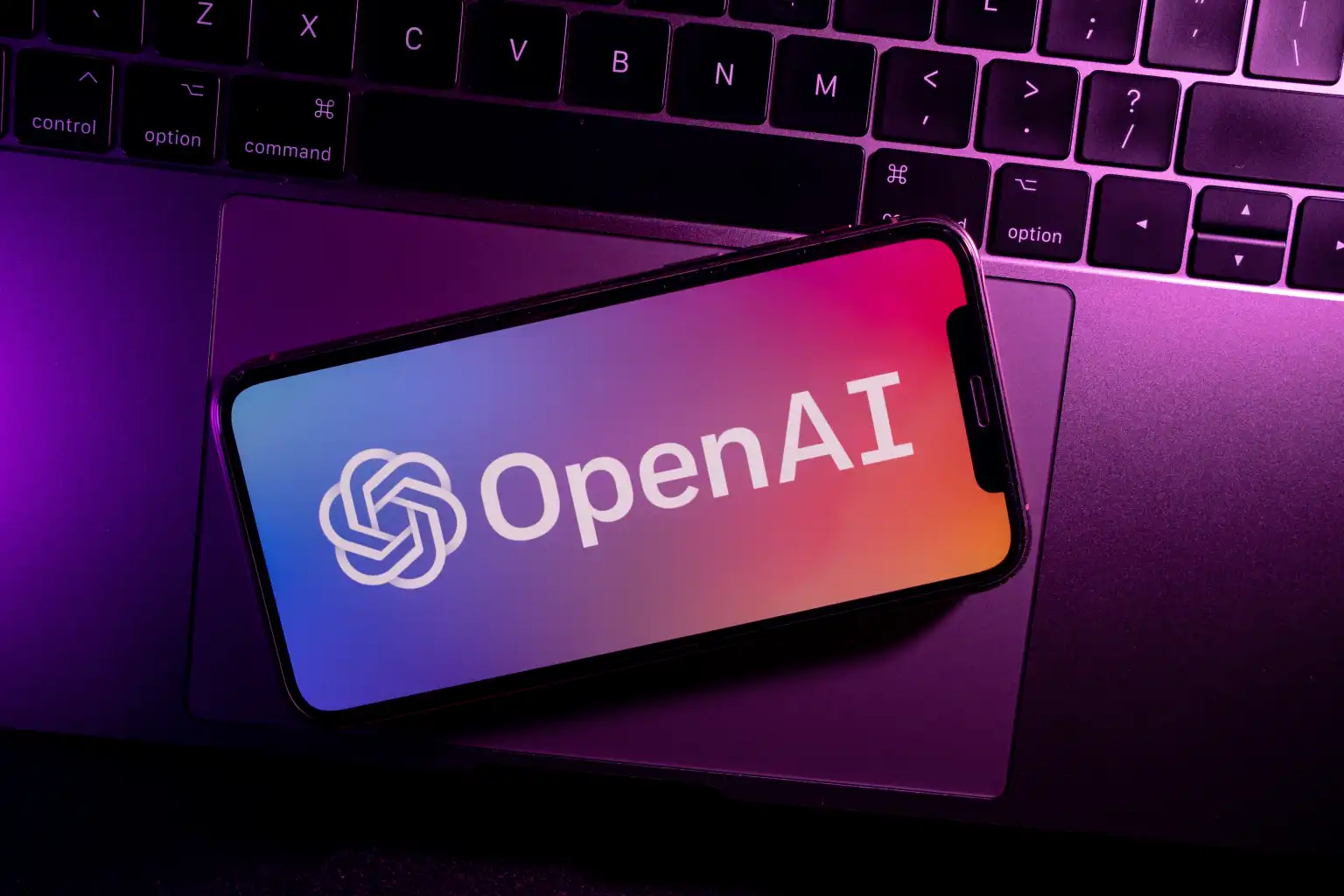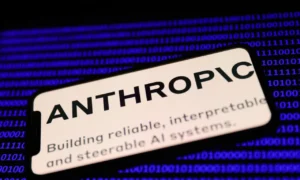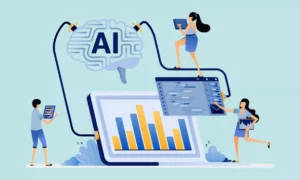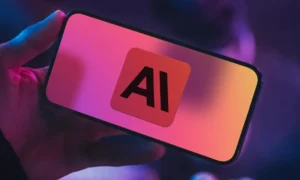Fidji Simo has spent her career proving that technology should serve everyday people, not just those who can afford premium access. As Instacart’s former leader, she turned grocery delivery from a luxury into a mainstream necessity. Now, with her upcoming role as OpenAI’s CEO of Applications, she’s setting her sights on something far more ambitious.
Her first public statement ahead of joining the company reads less like corporate messaging and more like a blueprint for societal transformation. Simo believes artificial intelligence represents the single greatest opportunity to level economic and social playing fields in human history. The catch? It won’t happen by accident.
“Every major technology shift can expand access to power,” she writes, “but it can also further concentrate wealth and power in the hands of a few.” Her solution involves deliberately designing AI applications that democratize six fundamental sources of human empowerment.
Beyond the Hype: A Framework Grounded in Reality
Simo’s approach stands out in an industry prone to grandiose promises. Rather than vague claims about AI changing everything, she outlines specific domains where intelligent systems can address concrete inequalities.
Knowledge represents her first target. Expert-level learning has traditionally required expensive tutors, elite institutions, or years of dedicated study. Recent research suggests AI tutors help people learn twice as fast compared to human instructors. A 2024 OpenAI study found 90% of ChatGPT users said the platform helped them “understand complex ideas more easily.”
The potential extends beyond individual learning. When personalized AI tutors become universally accessible, they could eliminate the gap between people who can afford quality education and those historically excluded from it.
Healthcare presents perhaps her most personal mission. Simo faced a complex chronic illness several years ago and discovered how fragmented medical care becomes, even with access to world-class specialists. She found herself connecting insights between doctors who weren’t communicating with each other.
Her response was characteristically direct: hire a Stanford tutor to learn biology and genetics, then establish a research institute focused on chronic diseases. Most patients lack such resources, but AI could provide similar capabilities through different means.
The technology can decode medical jargon, explain lab results, and help patients understand treatment options in plain language. Nearly nine in 10 U.S. adults struggle to understand health information, leading to worse outcomes and over $200 billion in avoidable costs annually. AI medical guidance could shift those dynamics significantly.
Creative expression offers another democratization opportunity. Simo paints in her spare time but finds the images in her mind far more complex than what she can execute on canvas. AI image generation tools now allow her to iterate until outputs match her mental visions.
This isn’t about replacing human creativity. She still paints, and seeing her visions on screen actually helps translate them to canvas. But if AI gives everyone access to tools that transform ideas into images, stories, or music, it expands who gets to participate in creative work.
Nearly one in three Gen Z users report AI tools help them express themselves in ways previously impossible to them.
The Economics of Opportunity
Simo’s business background emerges most clearly in her economic empowerment vision. Starting a small business in the United States typically costs around $30,000, creating an insurmountable barrier for many potential entrepreneurs. Technical skills, particularly coding, have represented another major hurdle for people with ideas but no programming knowledge.
AI is collapsing these barriers rapidly. A 2024 Shopify report showed AI-enabled solo entrepreneurs launched businesses 70% faster than peers without access to these tools. Simo offers a personal example: her nine-year-old daughter used AI to create a functional party planning website in one weekend, complete with service showcases and client booking capabilities.
The workforce implications won’t be straightforward. Companies will hire fewer people as existing teams accomplish more with AI assistance. Some jobs will disappear entirely while new roles emerge. That reality makes widespread AI education critical for ensuring economic benefits get distributed broadly rather than concentrated among current tech workers.
For people not launching businesses, AI can serve as a sophisticated financial literacy coach. Only one-third of U.S. adults can correctly answer basic financial questions, leading to poor decisions and unnecessary stress. AI guidance on saving, budgeting, investing, and debt management could close these knowledge gaps systematically.
Time as Currency, Support as Infrastructure
Her perspective on time management draws directly from her Instacart experience. In 2012, paying someone to shop for groceries felt like an extreme luxury reserved for wealthy families. Through careful product design and strategic pricing, Instacart made grocery delivery accessible to millions of ordinary households.
The average U.S. household spends nearly 20 hours weekly on domestic work, logistics, and errands. Wealthy people have always bought back time through personal assistants, household staff, and private services. Simo believes AI agents can provide similar time-saving capabilities to anyone, making what once felt extravagant become routine across income levels.
Her support framework addresses barriers that aren’t about access or opportunity but rather self-doubt, isolation, and burnout. She credits her business coach Katia as transformative to her career, joking that “everyone needs a Katia in their pocket.”
People already turn to ChatGPT for support preparing difficult conversations, working through career setbacks, processing grief, or organizing chaotic thoughts. Most people don’t have regular access to therapists or coaches they can contact frequently. AI coaches could be available throughout each day, leveraging comprehensive understanding of someone’s life to provide ongoing guidance.
This isn’t about replacing human connection but filling gaps that often go unaddressed. Many people don’t feel comfortable opening up to family or friends about sensitive topics. Even those with access to professional support typically spend an hour weekly or less with therapists or coaches.
The Design Choices That Matter
Simo’s framework reflects awareness that AI’s democratizing potential won’t automatically materialize. The decisions made now about accessibility, pricing, user experience, and safety standards will determine whether artificial intelligence becomes an equalizing force or another tool that widens existing advantages.
Her healthcare applications seem particularly urgent given current system inequalities. If AI can help patients understand their conditions and navigate treatment options without requiring extensive medical education, it could rebalance power dynamics that currently favor providers over patients.
The creative expression angle challenges common assumptions about artistic authenticity. Rather than diminishing human creativity, she frames AI as expanding participation by removing technical barriers that have historically limited artistic expression to those with specific training or natural abilities.
Her economic empowerment vision faces the steepest implementation challenges. Ensuring AI business tools remain accessible to people with limited resources while maintaining quality standards necessary for serious entrepreneurship requires careful balance between democratization and commercialization pressures.
A Test Case for Silicon Valley Values
Simo’s appointment and public statement arrive at a pivotal moment for OpenAI and the broader AI industry. As capabilities advance rapidly, questions about equitable access and benefit distribution have moved from academic discussions to practical policy debates.
Her track record at Instacart provides some evidence she understands how to scale ambitious concepts into mainstream adoption. That experience involved transforming a luxury service into something millions of families now consider essential infrastructure.
Whether OpenAI can execute similar transformation while managing competitive pressures, investor expectations, and the technical challenges of safe AI deployment remains an open question. The company’s recent leadership changes and strategic shifts suggest internal debates about balancing commercial success with broader social impact.
Simo’s emphasis on intentional design choices signals recognition that default technology trajectories often reinforce existing power structures. Her framework essentially argues for swimming against those currents through deliberate product decisions that prioritize accessibility over maximum profitability.
“If we can make intelligence accessible everywhere, affordable to everyone, and easy to understand, we can drive the biggest opportunity engine the world has ever seen,” she stated in her announcement.
The stakes extend beyond OpenAI’s business strategy. If Simo succeeds in democratizing AI access across her six empowerment domains, it could establish a template for how other technology companies approach equity concerns. If she fails, it may reinforce skepticism about Silicon Valley’s capacity for self-regulation on social impact issues.
Will intentional design prove powerful enough to overcome AI’s natural tendency toward concentrating advantages? The answer may define technology’s role in society for the next decade.



























